 When there's a killer on the loose you'd better sleep with one eye open. 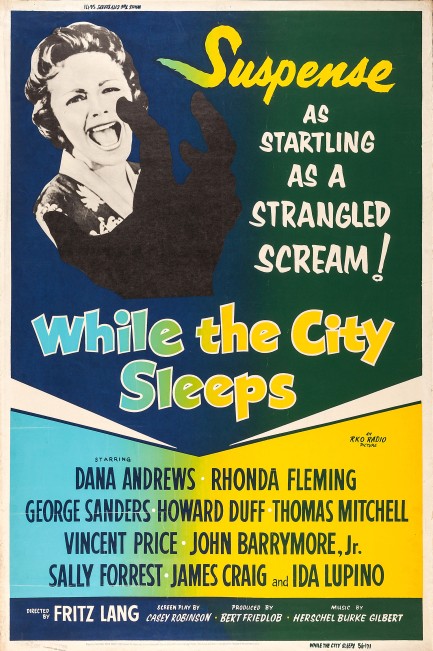
This poster for While the City Sleeps doesn't impress with masterly art the way so many vintage promos do, but its simplicity is, in an oblique sort of way, we think, meant to echo tabloid covers from the era. RKO made a special poster in collaboration with Confidential magazine, which you'll see below. The movie's plot is pure tabloid fodder. A serial killer has slain women in New York City, leaving the cryptic message “Ask mother,” written on the walls of one murder scene. Vincent Price, owner of Kyne News Service, part of a media empire comprising ten newspapers, a wire service, and other interests, offers the position of executive director to three employees in order to draw them into cutthroat competition with each other. Soon it becomes clear that finding the identity of the “lipstick killer” is the winning move. Intrigue and subterfuge take over the office. Everyone gets involved, from senior editors to stringers to gossip columnist Ida Lupino, but the killer is too clever to be caught.
At least until intrepid Pulitzer Prize winning television reporter Dana Andrews airs a scornful and taunting broadcast, deliberately setting up his own fiancée as bait. He doesn't even ask her permission. Well, he does, but only after arranging to publish their engagement announcement in the New York Sentinel right next to a story about the killer. Reckless? Yes. Presumptuous? For sure. There are intertwined plotlines here, but Andrews using his true love as a lure was the most interesting aspect for us. He isn't the only heel on display. The movie is ostensibly about a serial killer, but is really a framework for exposing backbiting and cynical ambition in the big city. Director Fritz Lang, in what was his penultimate U.S. film, explores the cruel banality of what, these days, some call “hustle culture,” and brings the production to a conclusion that's, in the words of Thomas Mitchell's character, “Neat, but nasty.” Our words are: a mandatory watch. While the City Sleeps had a special world premiere today in 1956. 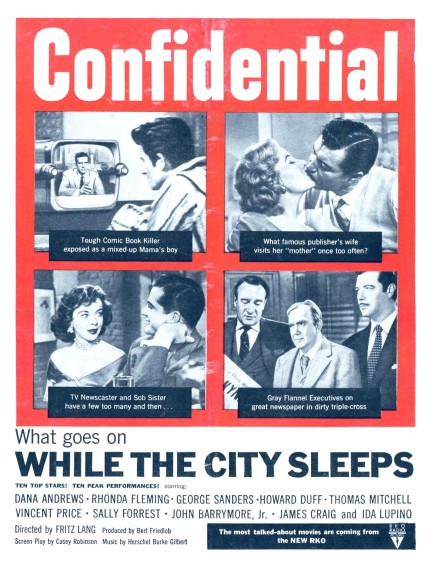 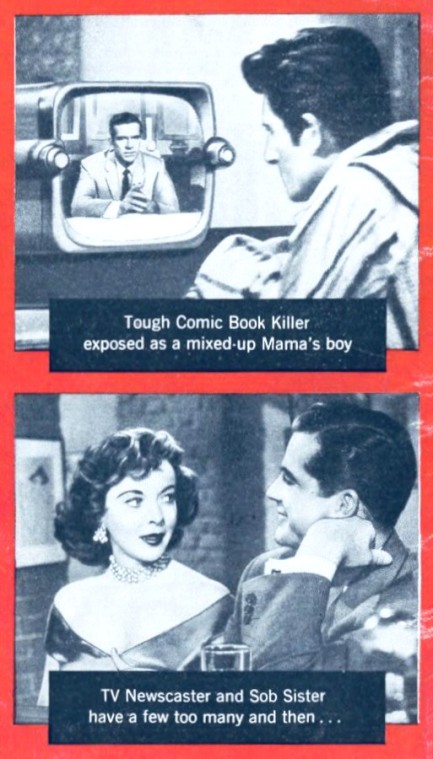 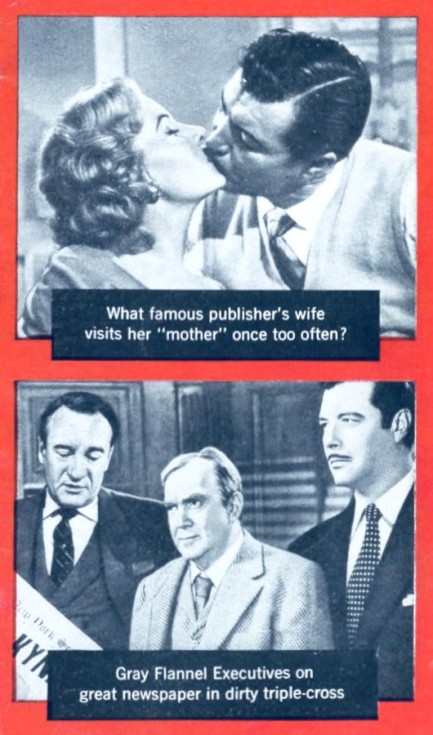 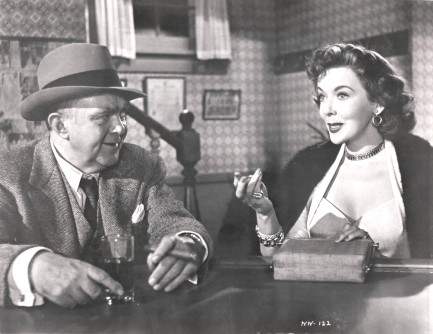 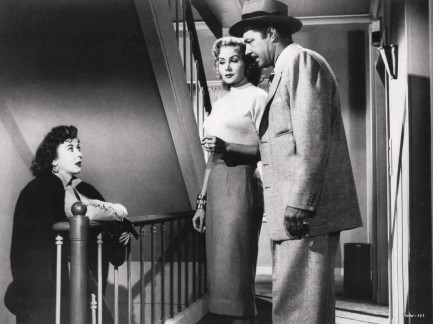 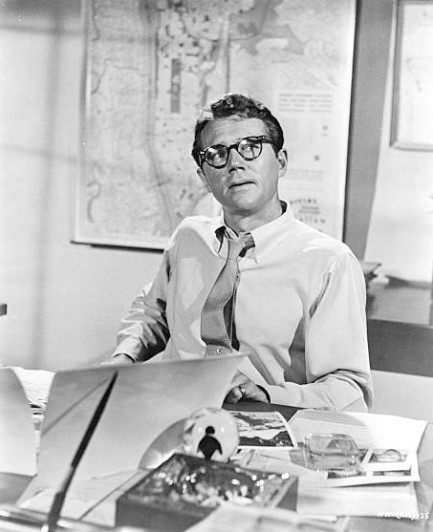 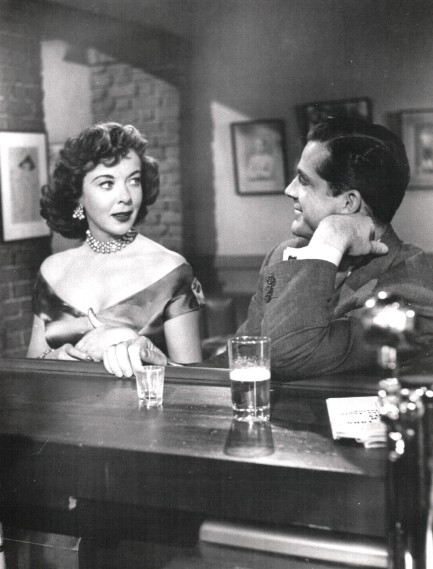 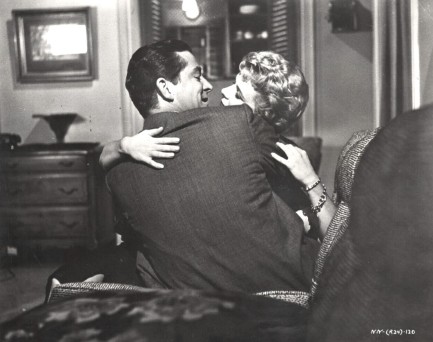 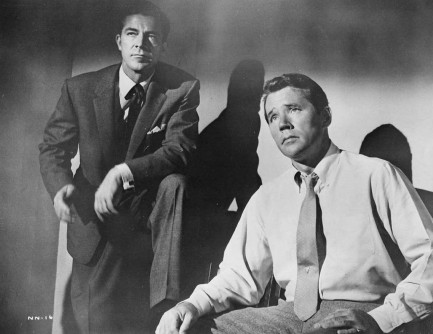 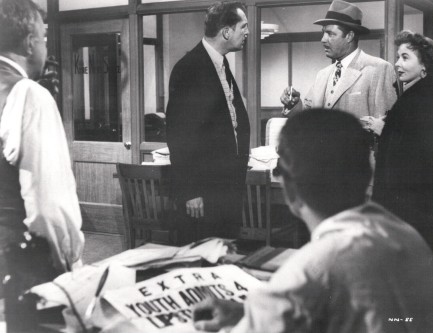 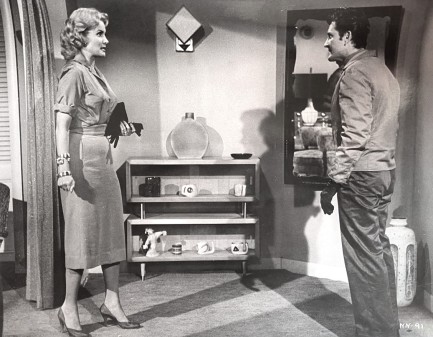 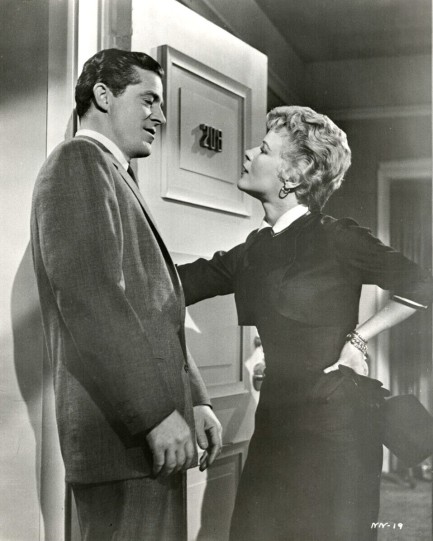 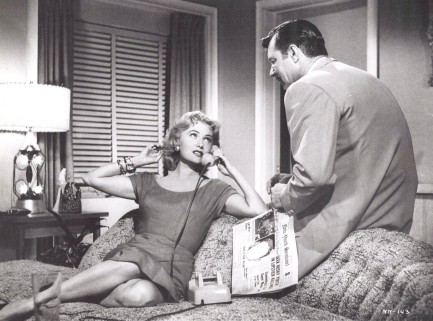 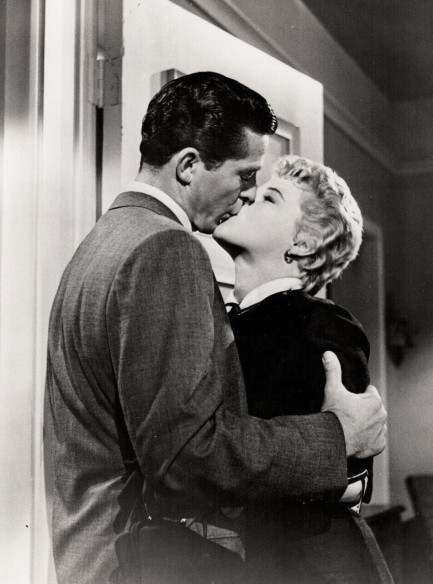 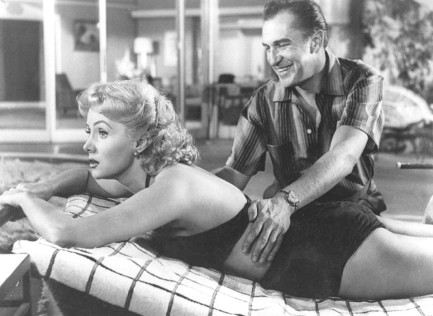 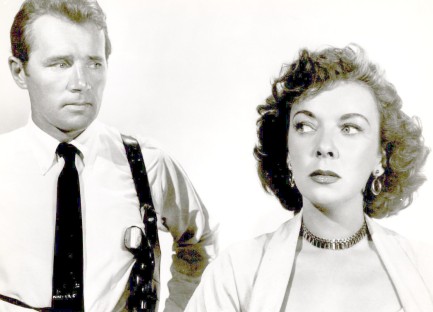 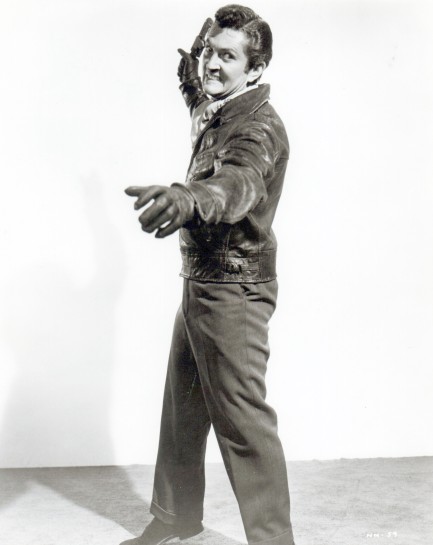 Edit: Vintage movies are excellent windows into bygone customs and practices. There's a great moment in this one. Rhonda Fleming and James Craig are chatting in her apartment late one night when the doorbell unexpectedly buzzes. They look at each other confused for a second, then Fleming says, “It's probably the drugstore. That was the last bottle of Scotch.” Edit: Vintage movies are excellent windows into bygone customs and practices. There's a great moment in this one. Rhonda Fleming and James Craig are chatting in her apartment late one night when the doorbell unexpectedly buzzes. They look at each other confused for a second, then Fleming says, “It's probably the drugstore. That was the last bottle of Scotch.”
You know, there were a lot of things wrong with the mid-century era. But there were a few things right too. Getting the all-night drugstore to deliver booze has to be one of the most right things we've ever heard of, so we give thanks to While the City Drinks—er Sleeps—for clueing us in, and suggest you call your congressional rep immediately and ask for a law allowing pharmacies to deliver alcohol. If not for yourself, do it for the children.
 Rise by the camera, fall by the camera. 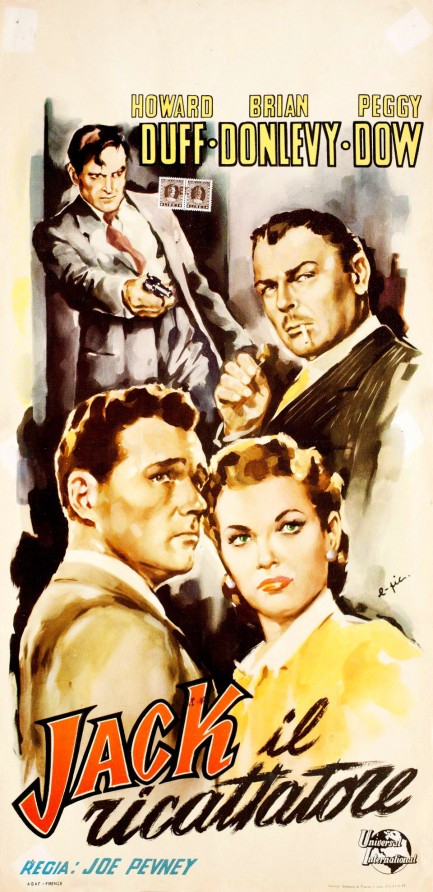
Above is a promo poster for the 1950 drama Shakedown made for the Italian market, where it was called Jack il ricattatore, or “Jack the blackmailer.” It stars Howard Duff as a photographer whose ambition pushes him across the line into criminality. We talked about it a while back. The poster is signed by an artist we can't identify—it looks like “e-pic.” We've seen other work by this person, but we don't have a real name or any other biographical info. This is a nice effort, so we'll an eye out.
 Danger there's a Shakedown dead ahead. 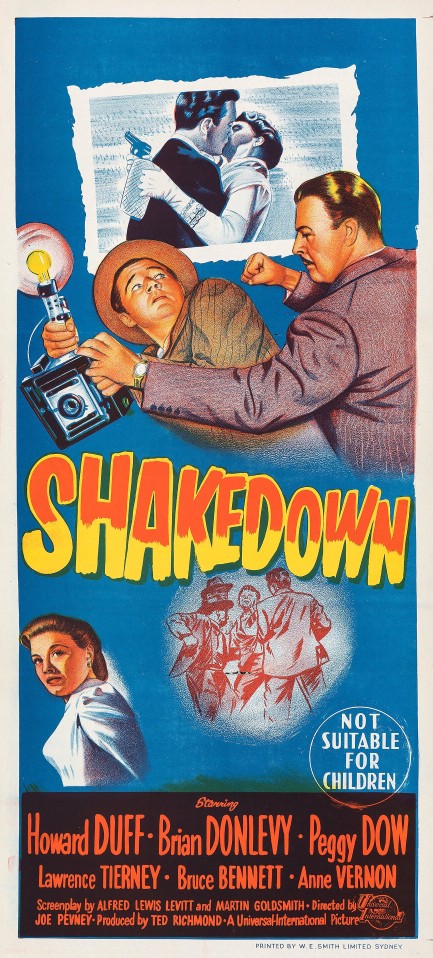
If only real life were bounded by the same rules as mid-century cinema. In real life you can screw someone completely to succeed and in many quarters you're hailed as an amazing talent and can even run for president, but in vintage cinema anyone who succeeds had better do it via fair play or the screenwriters will punish them. In Shakedown, Howard Duff plays an ambitious photographer symbolically named Jack Early, who takes shortcuts to success in San Francisco. He talks his way into a job at a local newspaper, and during his duties quickly reveals himself to be not only ambitious, but amoral. He generates a pile of off-the-books cash with various hustles, and reaches a point where he's full of himself, reckless, and dressing like he runs a stable of hookers on the side.
It's not a surprise when, at this point, in an act of utmost hubris he pits two deadly gangsters against each other by using photos of one engaged in a criminal act. When his blackmail results in one crook blowing the other up with a bomb, Early is right there with his camera and is almost killed too. But he gets the photo. It earns him upper tier status among San Fran lensmen, and the best assignments. But even that isn't enough for him. When one magazine editor offers him top rates for his services, his response is: “The top's too low.”
Clearly someone suffering from this level of egomania is headed for a mugshot session or a mortuary—the mid-century movie censorship regime demanded it. The only question is how exactly does Early go down. We'll only tell you that his journey is entertaining, if unlikely, and the film on the whole is a better than average vintage drama, bolstered by the rock solid Peggy Dow in a supporting role, along with Brian Donlevy and Lawrence Tierney as Gangster A and Gangster B. When it's all over you'll believe the corrupt always lose—on the screen anyway. Shakedown premiered in the U.S. today in 1950.
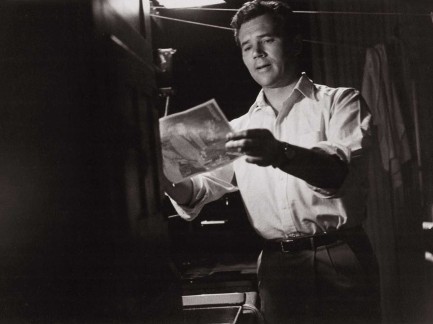 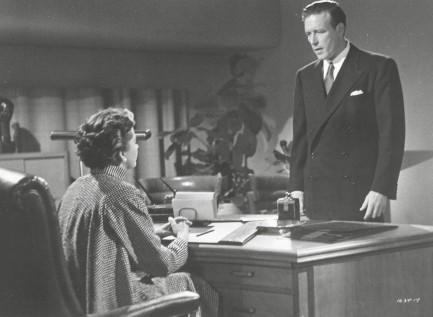 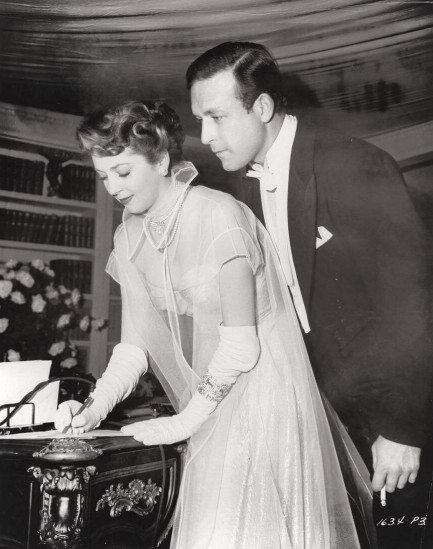 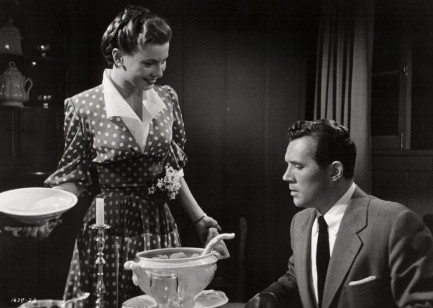 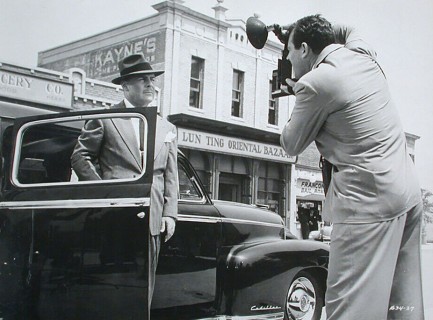 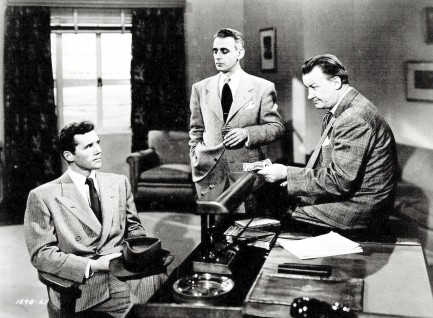 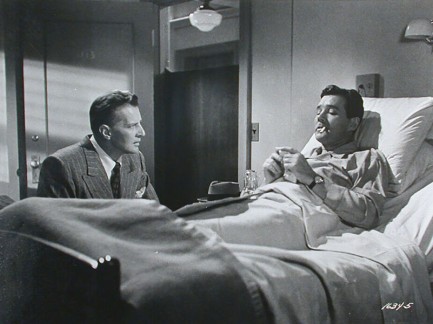 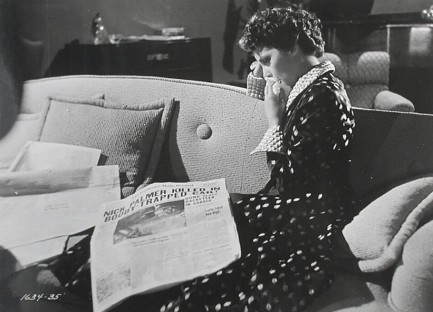 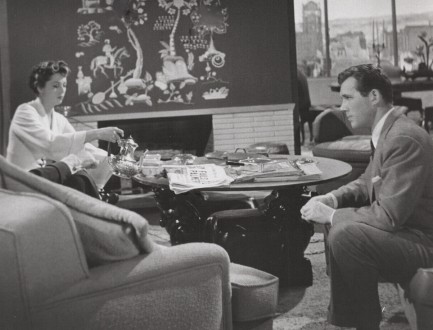 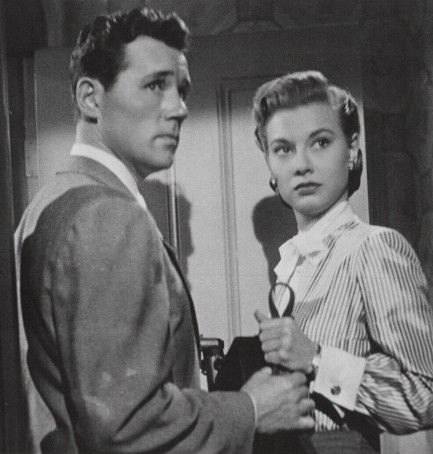 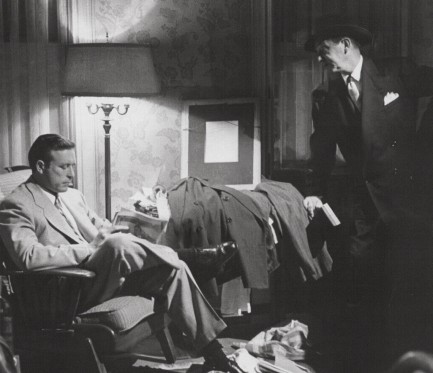 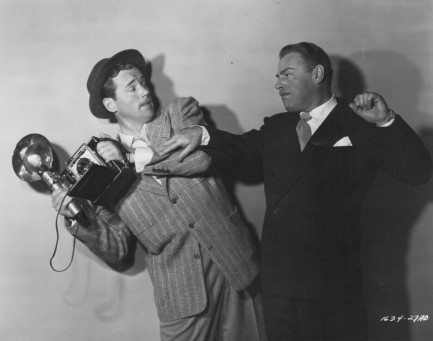 
 We'd to hate to find out what the other thirty-five are like. 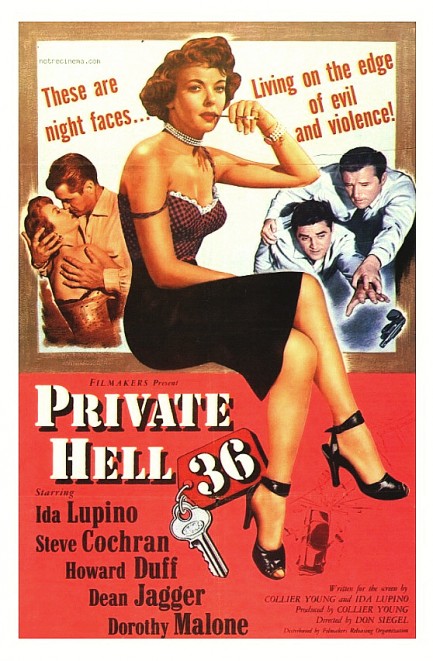 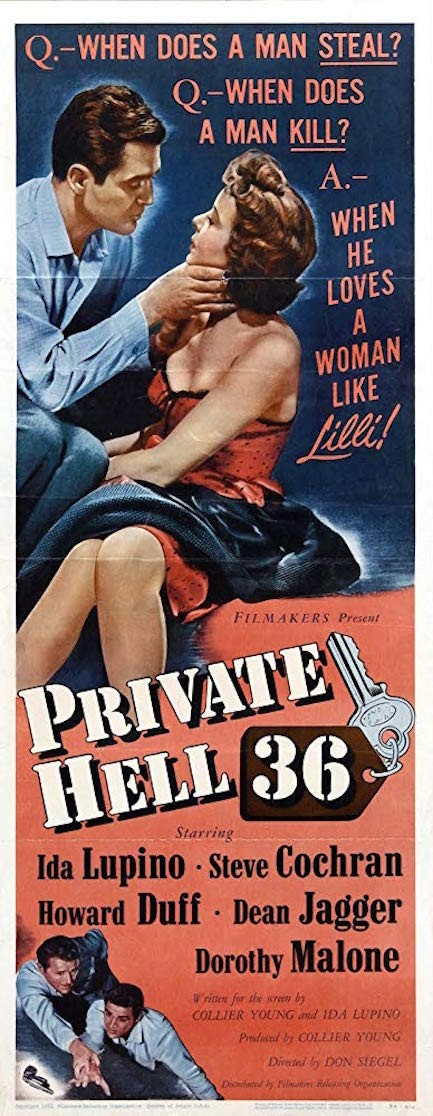
Private Hell 36. It doesn't mean anything, but what a great title. And it comes with two great promo posters. These are probably in the first two chambers of hell to lure you in. Made in 1954, this film noir co-stars and was co-written by Ida Lupino, who plays a woman who is convinced to help the police on a stakeout for a counterfeiter. She'd been passed a fake fifty but the police can't identify the crook unless she sees him and fingers him. As the days pass cop Steven Cochran takes a liking to her, and she to him. Star-crossed love in the noirish night. Lupino wants the finer things in life. Cochran wants to give them to her. When counterfeit bills start blowing on the wind, Cochran and his partner split over stealing the cash. You know where this goes—nowhere good.
Cochran is really good in this. As his decisions hurt those around him and his circumstances constrict his possibilities in the worst way, the performance he gives generates tension and empathy. Lupino does her usual great job, and the support from Dorothy Malone and Howard Duff is perfect, so in the end what you have is a solid film noir tinged with affecting interpersonal drama and working class pathos. In real life we don't feel the least bit bad for dirty cops, but that's the beauty of art—it puts you in other people's shoes and for an hour or two you understand. Private Hell 36 is short and to the point. It asks: If $80,000 landed in your lap would you keep it? In film noir, you better not.  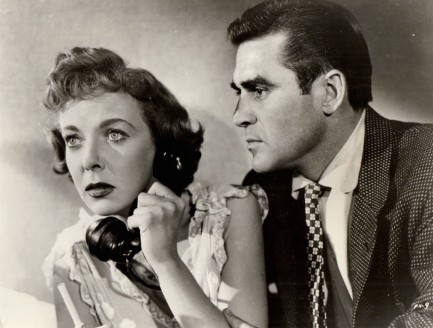 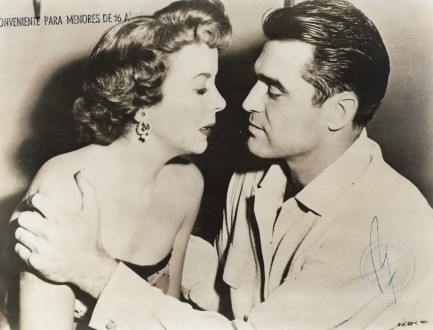 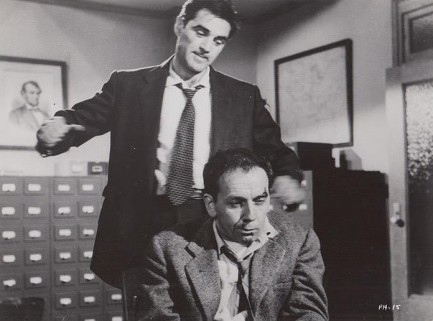 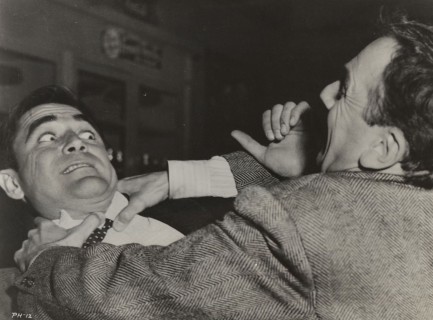 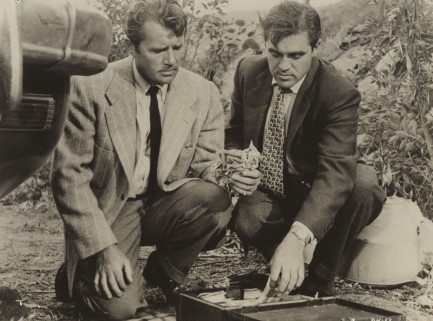 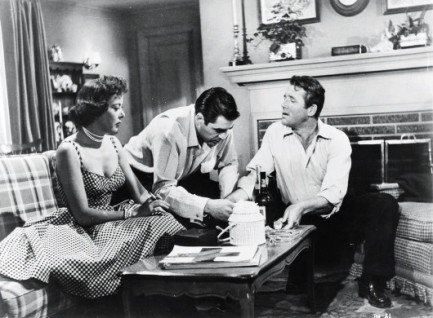 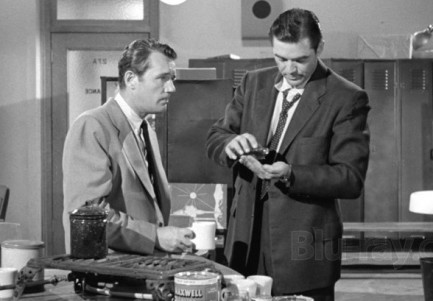 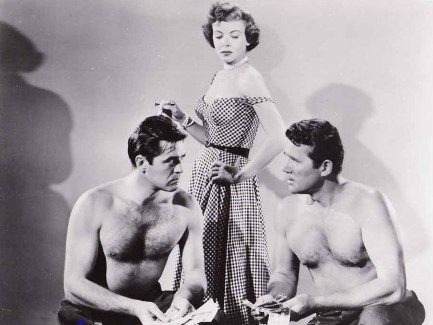
 There are eight million stories in The Naked City. 
Above: a great French poster for Jules Dassin’s film noir La cité sans voiles, which was originally produced in the U.S. and called The Naked City. Dassin, who apprenticed under Alfred Hitchcock, was one of the quintessential noir directors, also helming 1947’s Brute Force, 1949’s Thieves’ Highway, and 1950’s spectacular Night and the City. His career in the U.S. was ruined when he was named during the anti-communist hysteria of the 1950s, forcing him to live the rest of his life in more tolerant France. It was there that he made the 1955 heist thriller Du rififi chez les hommes, aka Rififi, possibly his best—and best remembered—work. The Naked City, while not perfect, is certainly a significant piece, due to both its style and substance. Its tagline has become part of the American lexicon: "There are eight million stories in the naked city; this has been one of them." In 2007 the U.S. Library of Congress agreed that The Naked City was a special achievement when it selected the film for preservation in the National Film Registry for being “culturally, historically and aesthetically signifitcant.” For Dassin, who'd been persecuted for a political belief, maybe the award was some small consolation. If so he didn't get to enjoy it long—he died the next year. La cité sans voiles premiered in France today in 1949.
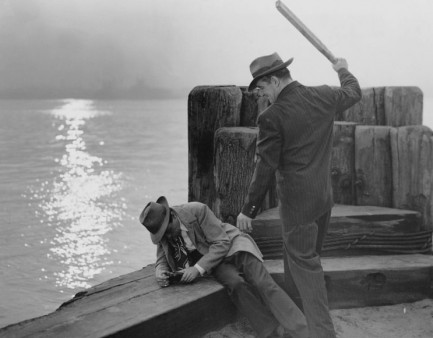  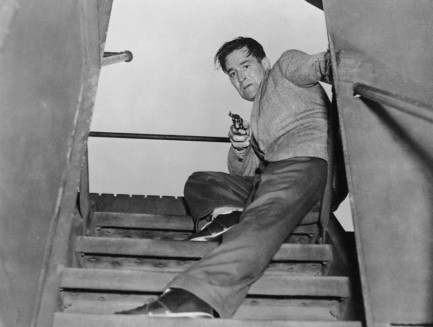 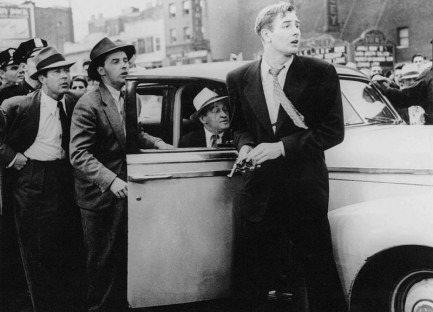
|
 |

The headlines that mattered yesteryear.
2003—Hope Dies
Film legend Bob Hope dies of pneumonia two months after celebrating his 100th birthday. 1945—Churchill Given the Sack
In spite of admiring Winston Churchill as a great wartime leader, Britons elect
Clement Attlee the nation's new prime minister in a sweeping victory for the Labour Party over the Conservatives. 1952—Evita Peron Dies
Eva Duarte de Peron, aka Evita, wife of the president of the Argentine Republic, dies from cancer at age 33. Evita had brought the working classes into a position of political power never witnessed before, but was hated by the nation's powerful military class. She is lain to rest in Milan, Italy in a secret grave under a nun's name, but is eventually returned to Argentina for reburial beside her husband in 1974. 1943—Mussolini Calls It Quits
Italian dictator Benito Mussolini steps down as head of the armed forces and the government. It soon becomes clear that Il Duce did not relinquish power voluntarily, but was forced to resign after former Fascist colleagues turned against him. He is later installed by Germany as leader of the Italian Social Republic in the north of the country, but is killed by partisans in 1945.
|

|
|

It's easy. We have an uploader that makes it a snap. Use it to submit your art, text, header, and subhead. Your post can be funny, serious, or anything in between, as long as it's vintage pulp. You'll get a byline and experience the fleeting pride of free authorship. We'll edit your post for typos, but the rest is up to you. Click here to give us your best shot.

|
|


















 Edit: Vintage movies are excellent windows into bygone customs and practices. There's a great moment in this one. Rhonda Fleming and James Craig are chatting in her apartment late one night when the doorbell unexpectedly buzzes. They look at each other confused for a second, then Fleming says, “It's probably the drugstore. That was the last bottle of Scotch.”
Edit: Vintage movies are excellent windows into bygone customs and practices. There's a great moment in this one. Rhonda Fleming and James Craig are chatting in her apartment late one night when the doorbell unexpectedly buzzes. They look at each other confused for a second, then Fleming says, “It's probably the drugstore. That was the last bottle of Scotch.”






































































































